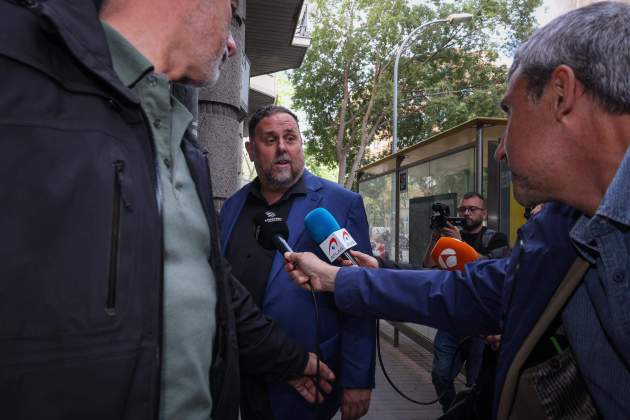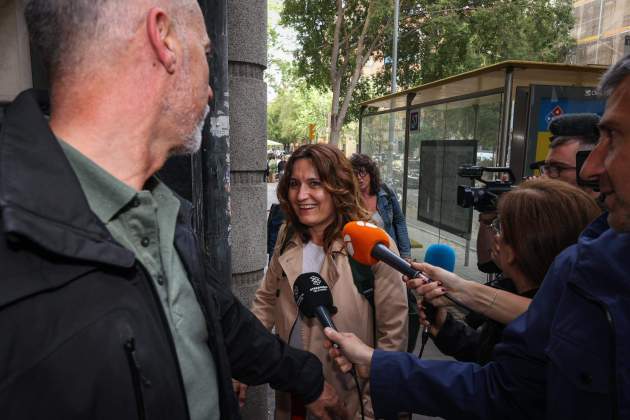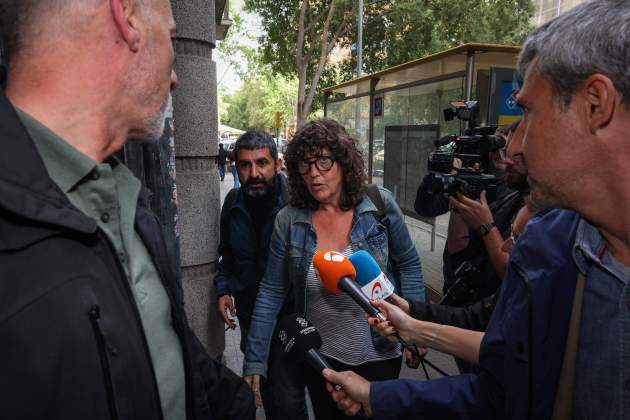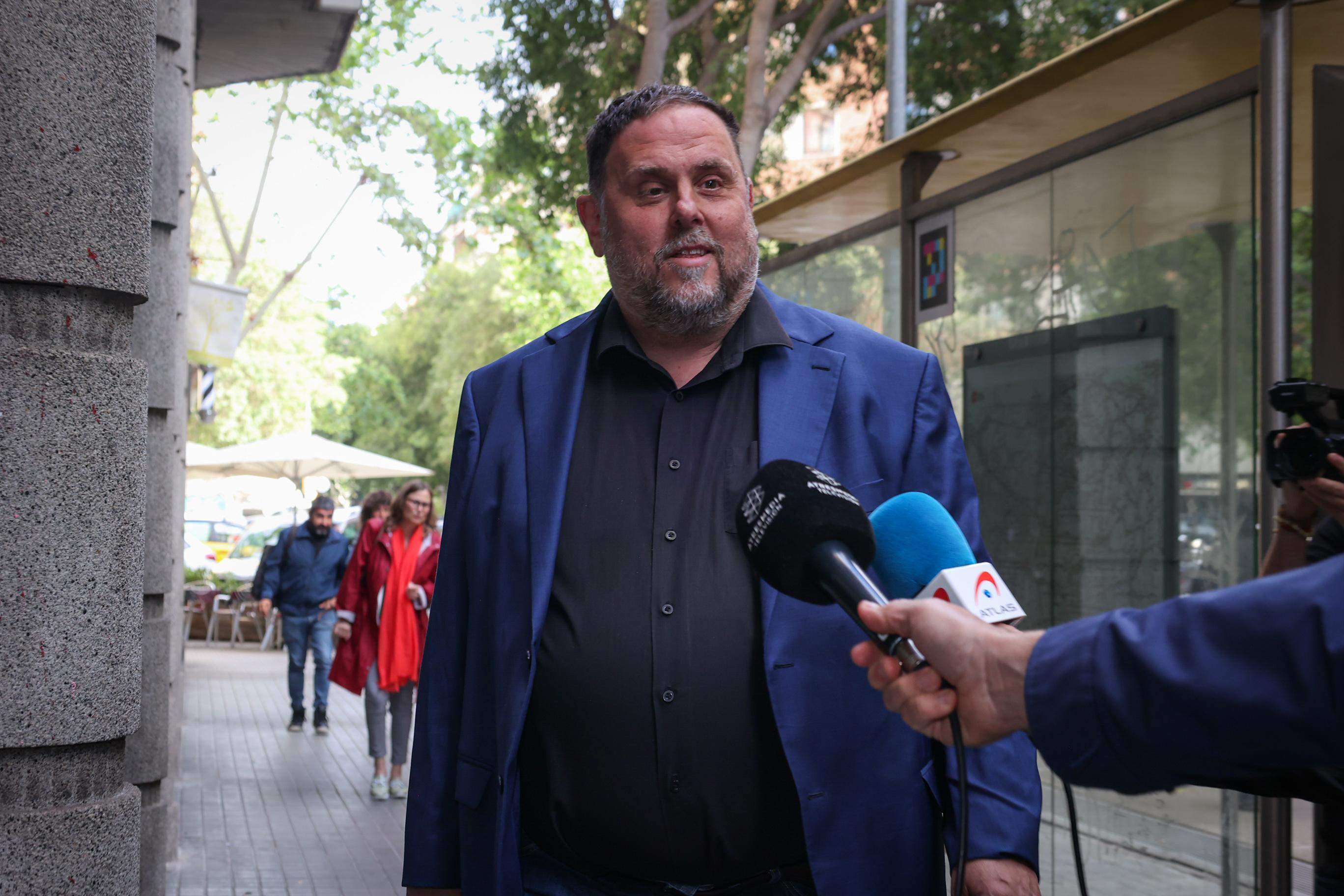An extraordinary meeting of the executive of the Catalan Republican Left (ERC) has been underway this Wednesday evening since 6pm, when the senior members of the party were seen arriving at the party headquarters, on Carrer Calabria in central Barcelona. The meeting comes a day after party president Oriol Junqueras published a letter announcing his intention to continue at the head of ERC despite the poor results obtained in the last three elections, all held over the last year - last spring's municipal vote, the Spanish general election in summer, and now, its disastrous performance in a Catalan election which an ERC government itself called nine months early.

Yesterday's pronouncement by Junqueras, who arrived ten minutes before the meeting's start time and greeted journalists, contrasts with that of Pere Aragonès, acting Catalan president and leader of the ERC candidacy which lost 13 seats last Sunday. If on election night Aragonès had already given some hints of his intentions, remarking straight after the results arrived that individual and collective decisions had to be made after the defeat, he made it clear the following morning with his announcement that he is to leave the political front line, stepping down as an MP without even being sworn in to the new legislature. He also made clear his opinion on the role that the party should play in this new legislature: that it should be part of the opposition.
Members of Pere Aragonès's government arrive
Numerous members of Aragonès's government arrived at the party's headquarters minutes before 6pm. Among them interior minister Joan Ignasi Elena, who this morning voiced his support for Oriol Junqueras's decision to stay. Minutes later, Laura Vilagrà, vice-president and number 2 on the Barcelona list, Tània Verge, minister of equality, and Ester Capella, all of whom have a seat in Parliament in this coming legislature, also arrived.

Joan Tardà asks for Illa not to be blocked while Elena discards the idea
Earlier today the first opinions from the Republicans began to be heard in public about what they should do. ERC's spokesperson in Congress, Joan Tardà, opted to avoid blocking the investiture of Salvador Illa and proposed taking a "collaborative" attitude, while interior minister Joan Ignasi Elena (close to Junqueras) said the contrary - that the party should not use its vote to enable the Catalan Socialist leader to form a government. In fact, the discourse of the most senior Republicans, both Aragonès and Junqueras, is that they must move to the opposition to recover from their poor results.
Nevertheless, the intention of not facilitating an investiture of Salvador Illa has a possible downside for the party: the fact that a repeat election - considerably more likely if ERC does not help Illa to the presidency - would catch the Republicans ill-prepared. Pere Aragonès has stated he will not repeat as head of the list, and it is doubtful that Oriol Junqueras will be amnestied in time for an autumn election, due to the likelihood of judges sending preliminary questions to European justice. Even though Junqueras makes no secret of his intention to stand as a candidate, ERC will have to look for an alternative candidate if he remains banned from holding office, with the risk of losing even more support.

ERC passes the ball to PSC and Junts
At the moment, the party has - in its election night statement by Pere Aragonès - passed the initiative to the Catalan Socialists (PSC) and Together for Catalonia (Junts), calling on the two largest parties, who both increased their support on May 12th, to govern. However, the Junts+ candidate, Carles Puigdemont, has already advised that he intends to seek the investiture as president, arguing that the pro-independence project has more votes (through the combined total of 59 MPs held by Junts, ERC and the CUP) than the Socialist project (with its 42 seats, plus 6 of the Comuns). Nevertheless, Puigdemont's difficult path to an investiture would require him to convince the Socialists to abstain - presumably in return for Junts's continued support for the knife-edge majority of the Pedro Sánchez government in Madrid. All in all, variables that add a further level of complexity to the ERC leadership's decision-making this Wednesday evening.

